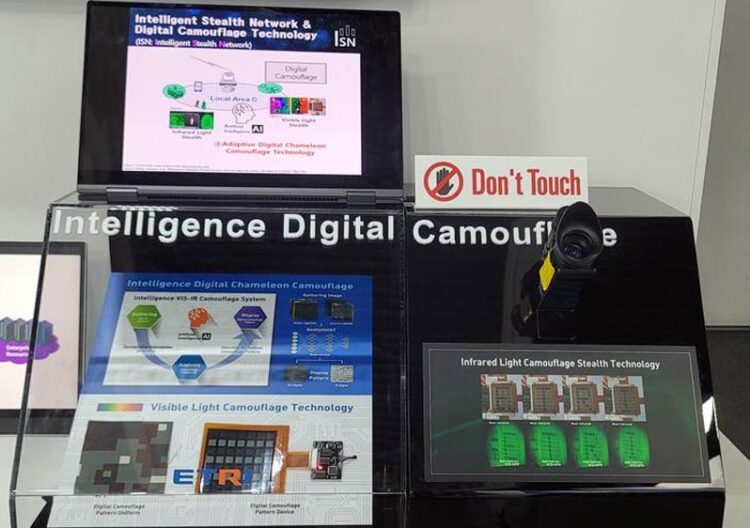ETRI unveiled hyper-realistic technologies for the metaverse world

Metaverse
Credit: Electronics and Telecommunications Research Institute(ETRI)
Revealed 11 technologies in display and stereoscopic imaging fields.
For the upcoming hyper-realistic metaverse world in the era of digital transformation, domestic researchers are showcased their achievements in the development of display and stereoscopic imaging technologies.
Electronics and Telecommunications Research Institute(ETRI) participated in consecutive events, starting from the 16th August at COEX in Seoul for ‘K-Display 2023,’ followed by ‘IMID 2023’ at BEXCO in Busan from the 23rd, where they exhibited a variety of innovative technologies capable of realizing a truly realistic metaverse world.
At this exhibition, ETRI unveiled a total of 11 technologies across four categories, including ▲hyper-realistic displays ▲converged displays ▲stereoscopic image creation and services ▲3D stereoscopic shape inspection equipment.
In the realm of hyper-reality displays, OLED-on-silicon micro-display technology to realize realistic virtual reality in extended reality (XR) devices for metaverse, and quantum dot color conversion display technology to implement high resolution and high color purity displays were introduced. It also introduced M3D technology to implement XR devices that are light, thin, and low in power consumption.
In the field of converged displays, strechable circuit technology to realize freeform displays that can be applied to space and objects according to various needs of users, and electrochromic display technology that can be applied to various infotainment inside a self-driving vehicles and controls transmittance were displayed. It also showed intelligent stealth display technology that can minimize exposure to enemies day and night by displaying visible or infrared images that are attached to the surface of military equipment and harmonize with the surrounding environment.
In the realm of stereoscopic image generation and services, it displayed plenoptic content acquisition, generation, authorization, and visualization platform technology that supports binocular, motor parallax, and focus adjustment, as well as OTT player intelligence technology through automatic generation of artificial intelligence-based multi-view objects. It also introduced hologram camera and processor technology that can produce real image acquisition holograms and computer-generated holograms in real time.
In the field of a 3D stereoscopic shape inspection equipment, it displayed 3D stereoscopic shape inspection technology that can precisely obtain 3D shape information of fine devices in semiconductor chips or display panels through hologram technology and accurately inspect defects. It also introduced 3D plenoptic microscope technology that can easily inspect the three-dimensional shape of a device in process in real time by attaching a lens similar in structure to an insect double eye to a general camera.
It also introduced ETRI’s display production batch process platform and the results of supporting materials, components, and equipment companies achieved through it.
Over the years, ETRI has established a collective process service platform that encompasses display panel design, production, and evaluation through voluntary cooperation among researchers.
Furthermore, ETRI is contributing to enhancing corporate technology competitiveness and building an industrial ecosystem. Since 2020, it has been operating the Display Panel Technologies National Laboratory (N-LAB) to provide 22 companies with materials, components, and equipment verification, prototype manufacturing services, and practical manpower training.
ETRI’s Dr. Lee Jeong-ik, the Senior Vice President of the Hyper-Reality Metaverse Research Laboratory, expressed his commitment to further advancing core display and metaverse technologies included in the 12 national strategic technologies and 6 priority strategic technologies selected by ETRI. He emphasized the importance of fulfilling their mission to propel the hyper-reality metaverse world forward.
About Electronics and Telecommunications Research Institute (ETRI)
ETRI is a non-profit government-funded research institute. Since its foundation in 1976, ETRI, a global ICT research institute, has been making its immense effort to provide Korea a remarkable growth in the field of ICT industry. ETRI delivers Korea as one of the top ICT nations in the World, by unceasingly developing world’s first and best technologies.
This technology was developed with the assistance of the Ministry of Science and ICT.
All latest news from the category: Information Technology
Here you can find a summary of innovations in the fields of information and data processing and up-to-date developments on IT equipment and hardware.
This area covers topics such as IT services, IT architectures, IT management and telecommunications.
Newest articles

Innovative 3D printed scaffolds offer new hope for bone healing
Researchers at the Institute for Bioengineering of Catalonia have developed novel 3D printed PLA-CaP scaffolds that promote blood vessel formation, ensuring better healing and regeneration of bone tissue. Bone is…

The surprising role of gut infection in Alzheimer’s disease
ASU- and Banner Alzheimer’s Institute-led study implicates link between a common virus and the disease, which travels from the gut to the brain and may be a target for antiviral…

Molecular gardening: New enzymes discovered for protein modification pruning
How deubiquitinases USP53 and USP54 cleave long polyubiquitin chains and how the former is linked to liver disease in children. Deubiquitinases (DUBs) are enzymes used by cells to trim protein…



